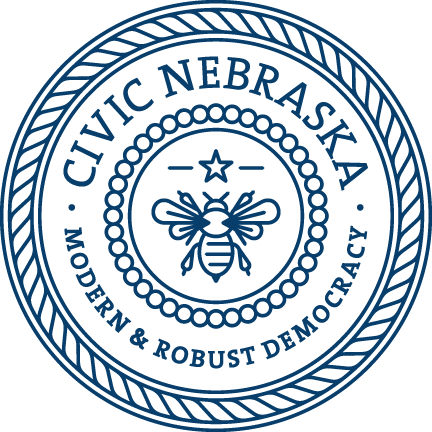Joseline Reyna- Multicultural Coalition of Grand Island
Joseline Reyna puts herself in position to connect with others. In her work with the Multicultural Coalition of Grand Island and in her personal life, Reyna knows weaving diverse backgrounds in the community comes down to relationships.
Connecting with new Americans
In addition to connecting Grand Island’s newcomers to services, one of the ways the Multicultural Coalition empowers individuals is by helping them become acquainted with the community. Their annual immigrant story walk celebrates new citizens by inviting them and their families as well as community members and donors to connect with each other, which might not happen on a daily basis. During the process of preparing for naturalization the Multicultural Coalition also pairs volunteers with clients to study for the citizenship test, providing a time for immigrants and long-time community members to connect one on one.
Reyna’s work is rooted in her personal experience knowing what it’s like to need help as a new American. “Coming to the US was a culture shock and I think the work that we do of helping newcomers feel a part of the community is very important. Oftentimes we’re that main resource and the first contact they have,” said Reyna.
“These are people”
In addition to helping get immigrants connected to the right help for everything from housing to taxes to school, Reyna also is passionate about connecting Grand Island residents to personal stories of immigration in their community.
“There’s often a negative narrative about immigration, and I like sharing my story and other stories to make personal connections to understand that these are personal stories and these are people in our community.”
Reyna says that connectivity works through relationships, so she puts herself in different groups where she has the opportunity to share her story as well as learn about others different from her. Although relationships with people very different from you can be a challenge, Reyna says building trust allows you to talk through questions about each others’ culture that would otherwise go unanswered.
Translation is important, but no substitute for networking
Language barriers and communication can be a challenge in Grand Island, where not only do many in the community speak Spanish at home but also Arabic and Somali. Reyna admits that as someone who grew up bilingual, she didn’t notice that the lack of translated materials resulted in exclusion of others in the community.
While printed materials and social media are important for communicating with their supporters, Reyna says that their clients communication is mostly done through networking and word of mouth. “It’s relationships that we build with our clients where they can then go and tell their friends…Understanding how different cultures function and learning about relationships helps to keep us providing services in the community.”
The Multicultural Coalition actively works to bridge communication through translated materials and personal relationships. As she continues this work, she says others can help build connection in the community by recognizing when we might be in a position of privilege to help others get a seat at the table.

